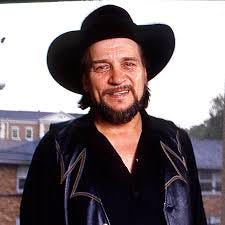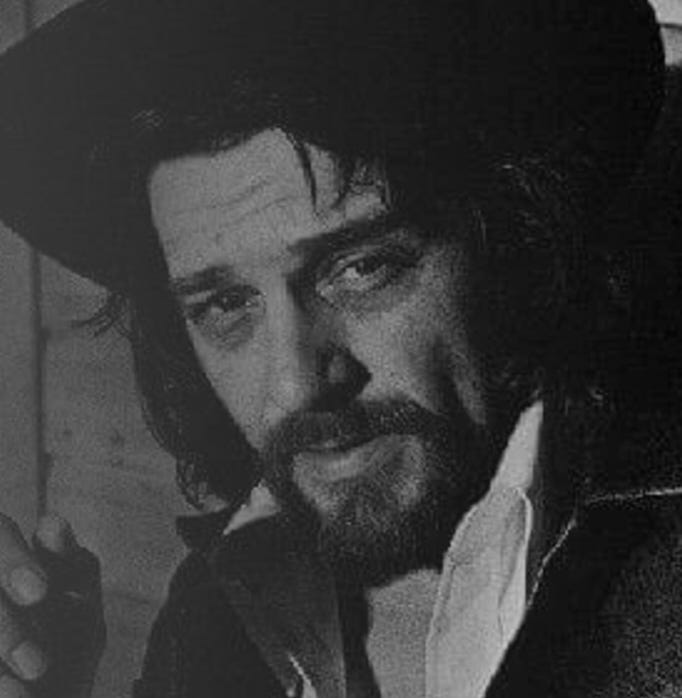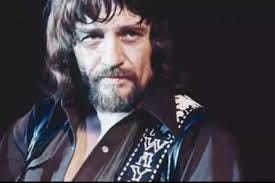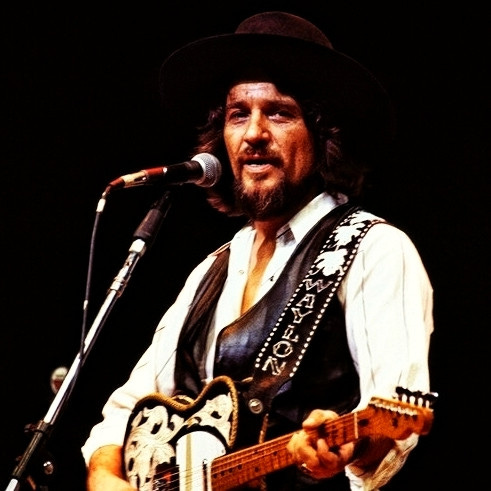The United States of Waylon Jennings
How listening to the outlaw country icon can solve all our problems
I. It’s Outlaw Time
Waylon smells. Some people, you can just tell by looking at them, even a picture of them. Waylon Jennings is one of those people. Google him: every portrait emanates a leathery, sawdusty, arm-pitty well-drink whiskey funk. Unwashed. A bit sour. The smell of a leather jacket you’ve worn every day for the past three months, a jacket that’s marinated in the air of countless roadside motels, roadhouse venues, and road-worn tour buses. A jacket that has never known clean, but has seen the world.







The funk you can practically smell coming off any photo of Waylon is a key indicator of his outlaw-ness, the way he’s gonna keep it real in a way that polished Nashville country musicians never would. Real-ness as unfiltered, unedited and unpolished has been part of the Waylon story, from the day he, Willie Nelson and others of the outlaw country movement began to reject Nashville’s slick hitmaking country music media machine.
And here’s my wager: 70’s outlaw country is what America needs now.
We’re culturally and politically primed for it. The Trump era is ruled by an outlaw sensibility—rejecting an overly slick, rule-bound establishment (Nashville, or the cultural center-left hegemony) in favor of a ‘real’, from the gut, insurrectionary movement that is messy and distrustful of institutional order. Outlaw country represented a cultural synthesis that takes things one step further than MAGA has so far. Waylon and Willie didn’t just turn their backs on Nashville, they absorbed the energies of early 70’s counterculture rock and roll as well.
Listen to Are Sure Hank Done It This Way — as much an over anti-Nashville musical manifesto as you’ll ever find. It basically sounds like Loaded-era Velvet Underground. Counterculture meets the heartland. Hegel would love this shit.
Outlaws from Waylon to Trump are loved for their perceived honesty—telling truth to power, whether about themselves or about the world. In other words, Americans love the honest criminal (Trump) more than they love the lying cop (Kamala). Waylon doesn’t shy away from his flaws and warts. He embraces them. And Trump supporters love the man because of how he seems to be honest about what he’s doing—despite the fact that he’s one of the greatest liars in American political history.
The Democrats are unable to be direct and blunt, even if it’s just for show, like Trump. America loves a straight shooter—but the Dem political machine still believes it can behave in an over-engineered, over-focus grouped slick way and win. The Dems still believe in Nashville.
II. How to Be a Real Man
Waylon’s realness isn’t just the rawness. It’s the complexity. That’s what funky smells have—something a bit off putting and unvarnished but something inviting and mesmerizing as well. It’s in his songs - the wounded pride, the toughness laced with vulnerability.
It’s a model for how to be a man that I think is a good starting point for what masculinity is missing today.
Lauren and I are expecting a boy, any day now. So these days I think a lot about men, what it means to be one. Given the politics of gender these days, raising one seems like a challenging road. Young men are falling behind. They are disaffected, rudderless, we are told, falling behind their female counterparts in school, living with parents longer, joining the workforce later. I think Waylon Jennings can help. Let me explain.
Writer and researcher Sarah Bernstein’s recent NYT Op-Ed underscores the tangled web driving what’s being called the current crisis in masculinity. Bernstein recalls a onetime gig as the assistant to a dating coach for straight men. The coach peddled advice on how to still be a “real man” while relating to “modern women.” I think the problem of masculinity can found right away in a nutshell in this phrasing, in which men still need to be ‘real’ - aka stay true to some essential notion of manhood, reflect some authentic ‘true’ masculinity, while women are seen as being able to change, evolve, become modern, mutate.
This phrasing reflects the contemporary notion of masculinity as basically a conservative project. Masculinity must be protected! It is surrounded by threats! Beta males, women, trans people, homosexuals, tofu, they all threaten to emasculate the real man. As Tony Soprano says, Whatever happened to Gary Cooper?
So on the one hand, the need to stay a ‘real man’ in the modern world, to me, is bullshit. It’s the wrong approach. And if I was going to find inspo for being a ‘modern man’ today, I’d look to the example of guys like Waylon whose strength comes from embracing their flaws, needs, and mistakes, not hiding them.
III. Beyond The Outlaw
Last lesson from WJ: the real outlaw is capable of moving beyond himself. In Don’t You Think This Outlaw Bit’s Done Got Out of Hand? Waylon takes a step back, engages in critical self-reflection, sees what he’s done, and decides maybe it’s time to move on. Can you imagine Trump saying, Hey y’all, this whole MAGA thing is getting a bit nuts, don’t you think?



Big days coming.